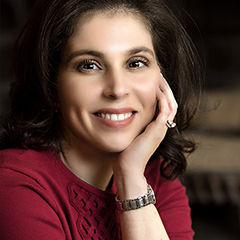I decided to become a health coach after searching for a midlife career change. I was drawn to the profession for many reasons, particularly the opportunity to engage with people who have a desire to live healthfully but still struggle with making good choices. After looking into different accrediting organizations, I chose to work with the American Council on Exercise (ACE). They gave me the foundational knowledge I needed, along with credentialing from a highly reputable organization that enabled me to start working right away in my chosen field.
Getting Certified
I compared a variety of health-coaching certifications and ultimately chose ACE because it offered a fully online study course, a companion manual, a useful exam preparation workbook and practice quizzes. ACE is credentialed by the National Commission for Certifying Agencies (NCCA), which gives ACE’s accreditation greater value. I completed the study course and took the exam in about 12 weeks. No other organization offered me all that, and at a reasonable cost to boot.
Launching My Practice
ACE supported me so that I could focus on supporting my clients. I turned to ACE when I needed to find professional liability insurance suitable for a health coach. ACE also offered me a robust website with materials, worksheets and forms that I could customize to fit my needs. It was reassuring to know that I could find what I needed for my clients all in one place.
Building my client list took time, creativity and resourcefulness. I began by launching a website, printing business cards, sending out a targeted mailing to local doctors, and looking for public speaking opportunities. I explained to the physicians I knew that I could help their patients struggling with lifestyle changes that were often a neglected part of their medical treatment plan. I attended events at our local hospital, went door-to-door to a few medical offices, and networked with doctors whenever I could. The turning point in my career path was when healthcare professionals in my area started to see me as a resource for those patients who could not make progress on their own. I also gained experience and increased my exposure to clinicians by taking on volunteer work and reduced-fee clients.
Today, my business has grown to include a satisfying balance of private clients, as well as a steady stream of patients from a medical practice where I serve as a part-time staff health coach.
A Typical Week
I spend the majority of my time in the office or on the phone, talking with clients about how they can transform their goals (most often weight loss) into daily sustainable behaviors. Nutrition and fitness is always an integral part of the conversation, but the focus is more on how to adjust the client’s mindset, habits and daily routines in a way that will support his or her weight-loss goals.
I have come to realize that my role is less as an educator and more as a facilitator. I listen carefully to clients, learn about their needs and then ask powerful questions that allow them to prioritize and problem solve their way toward a vibrant, healthy lifestyle. Occasionally, my clients and I take the coaching collaboration out of the office and into the real world. We might browse the aisles of a grocery store, cook delicious new recipes in the kitchen, walk a new nature trail, or visit a local restaurant to discover how to balance social eating with weight loss.
The Future
Over time, I think we will see more health coaches in workplace wellness programs, healthcare systems, doctor’s offices, community centers and fitness centers. The national trend toward outcomes-based medical reimbursement, along with the related increased reliance on ancillary medical staff, makes health coaching an attractive profession.
To succeed in this field, it helps to have an entrepreneurial spirit. Carve out a niche for yourself and tailor your message to a very specific audience. For me, this has meant focusing on local physicians and their patients who have tried losing weight on their own but continue to struggle. I know other successful health coaches who focus on a particular population or age group, such as people newly diagnosed with diabetes, women after menopause or recent college graduates.
What will your niche be? Take the time to explore opportunities in your community. A successful path will emerge when you discover where your passion and expertise intersect.
Final Thoughts
It has been four wonderful years since my career shift, and I am more confident than ever that ACE was the right organization to launch me into the world of health coaching. ACE offered me a high-quality certification program and then stayed relevant to me by linking me to a robust health-coaching section on their website, excellent professional insurance coverage and outstanding continuing-education opportunities.




 by
by 







